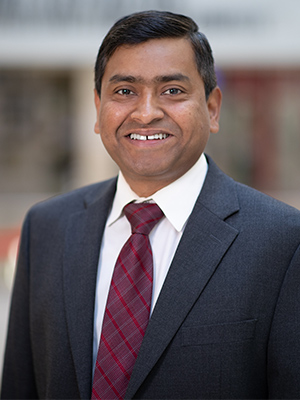 Dr. M.M. Faruque Hasan, assistant professor in the Artie McFerrin Department of Chemical Engineering at Texas A&M University, wants to capture the invisible. He wants to bury it deep in the earth. Miles below rock and bedrock, Hasan plans to sequester tons of carbon dioxide, keeping it from harming the atmosphere. He also could sell it and advance a new commercial enterprise.
Dr. M.M. Faruque Hasan, assistant professor in the Artie McFerrin Department of Chemical Engineering at Texas A&M University, wants to capture the invisible. He wants to bury it deep in the earth. Miles below rock and bedrock, Hasan plans to sequester tons of carbon dioxide, keeping it from harming the atmosphere. He also could sell it and advance a new commercial enterprise.
Hasan says carbon dioxide emissions are a big challenge, ascribing the abundant utilization of fossil fuels as the trigger of a rise in global temperature, a worsening of global warming as well as an agent in climate change. Hasan’s research focuses on making fossil fuels clean.
Before CO2 emissions can be stored or utilized downstream, Hasan considers different technologies for the first two critical steps of the process — capture and transportation.
Large-scale implementation is met with high cost, thus the approach must take into account energy conservation practices in harnessing this very dilute gas. Using pressure swing adsorption technologies and advanced materials such as zeolites, the process is now modeled to cost 40 percent less than any other competing technology in capturing CO2.
Hasan seeks to create a product and not just a liability.
"When cost is leveraged, industry will be more inclined toward progress in the areas of energy, economics and the environment,” Hasan said.
Carbon capture activities at the source, such as coal-fired power plants, may become part of a larger network that connects environmental constraints to marketplace profit.
“It’s a win-win situation,” Hasan said.
After capturing CO2 at the source, a pipeline transports the gas for enhanced oil recovery. The increased extraction rate of the oil will lead to greater commercial yields in the industry as well.
“It’s creating economic drivers in different places. Framework and policy level studies direct considerations about where sites and transportation venues could be outfitted in this multi-scale work." Hasan said while displaying a chart that projects pipeline possibilities.
Hasan began studying carbon sequestration/utilization in his postdoctoral studies at Princeton University, as part of Dr. Christodoulos Floudas’ research group.